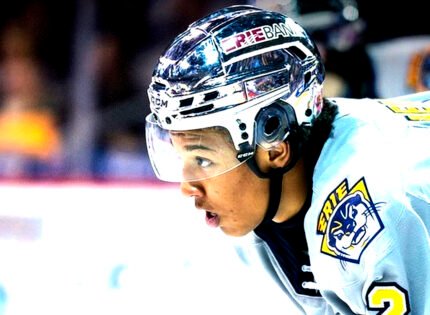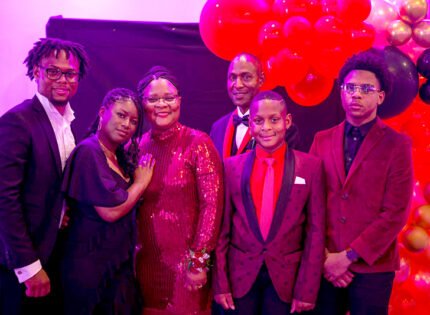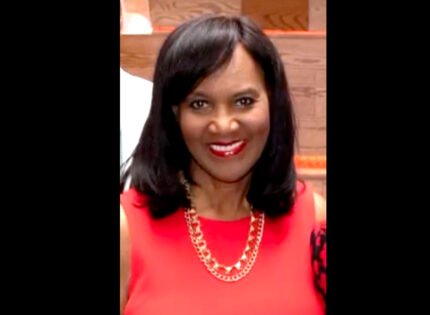Ryan Thorne remarkable Basketball journey McGill University Martlets
Egbert Gaye
Very early in life Ryan Thorne knew that he was going to make a living from basketball.
At the time he wasn’t sure h ow, but he dedicated himself to becoming one of the best players in the province, and in so doing tore up the Canadian University league with the Bishop’s University Gaiters in the mid to late 1990s.
ow, but he dedicated himself to becoming one of the best players in the province, and in so doing tore up the Canadian University league with the Bishop’s University Gaiters in the mid to late 1990s.
By the time he graduated in 1999, Thorne, who served as team captain for multiple seasons, led the Gaiters to a national championship in 1997-1998 while he held his place as a three-time Conference All-Star in the Quebec university league.
Although his talent didn’t take him into the big leagues, the knowledge that he acquired along the way together with the Economics degree he secured at Bishop’s landed him right where he wanted to be.
Today, as head coach of McGill University Women’s Basketball team and an assistant coach with the Canadian Junior Women’s National Team, Thorne is indeed getting what he always wanted from the game, but more important he says, is the satisfaction that comes with helping young players shoot for their best.
And he has the results to show. He took McGill from being one of the lowest ranked teams in Canada to six consecutive provincial championships between 2012 and 2016 and the number one ranked in the country for the past season.
They were on course to clean up at the national level this year but were upset by Toronto’s Ryerson College in the semi-finals.
Even so, 2016 was still a standout season for Thorne who walked away with the Canadian Inter-University Sports’ Women’s Basketball coach-of- the-year award, which will stand beside the six Quebec university coach-of-the-year awards that he copped in 2006, 2011, 2012, 2014, 2015 and 2016.
But as he told the CONTACT in a recent sit-down, his individual achievements hinge on what he has been able to achieve with the Martlets for the 13 years that he has been their head coach.
“For many years the team was one of the lowest ranking in the league and I knew to get to the top I had to change the culture and instill a culture of winning.”
As a perennial MVP from John Abbott College to Bishop’s University, Thorne knew how to win.
“I started by changing their habits when it came to training and practice… there were no summer breaks. Also, I expected them to bring the same discipline to the game that they did to their studies.”
He says before long that new attitude started to show itself on the court.
“We were not just going on the court and playing, but we were playing to become the best basketball team in the country by bringing a greater fight to every game.”
By 2012, he had built the Martlets into an almost unstoppable force, winning six consecutive provincial titles and guiding them to several strong showings in the CIS Final Eight national championships, finishing second in 201 5, and fifth in both 2014 and 2013.
5, and fifth in both 2014 and 2013.
Today, he stands at the top of the heap among coaches in Women’s Basketball in Canadian universities with a 228-179 overall record in 407 career games behind the McGill bench, the most coaching victories in the game for both men and women at the university.
Thorne, who holds a Level III coaching certification, became the top guy behind the bench after serving as assistant to head coach Lissen Moore for 15 years.
“I realized early in my coaching career that it was not sufficient to know how to play basketball or to be passionate about the game, but you had to be able to teach the game… teaching the game was something I had to learn properly.”
As coach of one of the top universities in the country, Thorne says much of his work centers around recruiting, scheduling, budgeting and making sure that his team is always mentally and physically prepared when they hit the court.
He has a staff of about six people to help him get the job done.
“I have to admit that recruiting might be one of my biggest challenges, because of the attractiveness of playing in the USA,” he says. “But I always try to impress on local players that there is a lot to gain by playing in this league and getting an education from McGill University.”
His credibility and talent extend into other realms of the game. In 2005 he was recruited by Basketball Quebec as a coach of the provincial women’s under-17 team five years, and two years with the under-15 program. He also coached for five years with the National Centre for Performance in Quebec, and was part of the coaching staff of the Quebec women’s senior squad during its 2012 Puerto Rico tour.
Also, since 2015 he has been part of the national program, serving as an assistant coach for Canadian Junior Developmental Women’s team and this year with the Canadian Junior Women’s team.
Thorne, whose older brother, Adrian, was a standout footballer at Waterloo University, grew up in the LaSalle area. His dad Albert, an insurance and financial broker, has been a solid force in our community and a foundation member of Barbados House Montreal.
He started playing ball on courts around the community and credits the experience and skills that he gained playing among some of the local legends of the game for getting him to where he is today.
He also talks about the balance that comes with having a good family life: his 19-year-old boy, Brooklyn, is at John Abbott College, and he has two daughters, Asia and Sienna, who sometimes depend on his skills in braiding hair.
He is also big on sharing his expertise with others and helping them reach their potential.
Two of his assistant coaches now hold head coaching positions with top universities around Montreal, Tenicha Gittens at Concordia University and Guillaume Giroux at Laval University. He takes pride in that.
Even as he comes to appreciate the strides he has made in the sport that he loves, Thorne says one of his lingering aspirations is to find the time to reach back into the community and share what he has learnt with students and aspiring ball players.
“It’s so important that they know that it takes a certain type of kid to want to succeed. You have to want to succeed in school and in basketball. They go together.”












